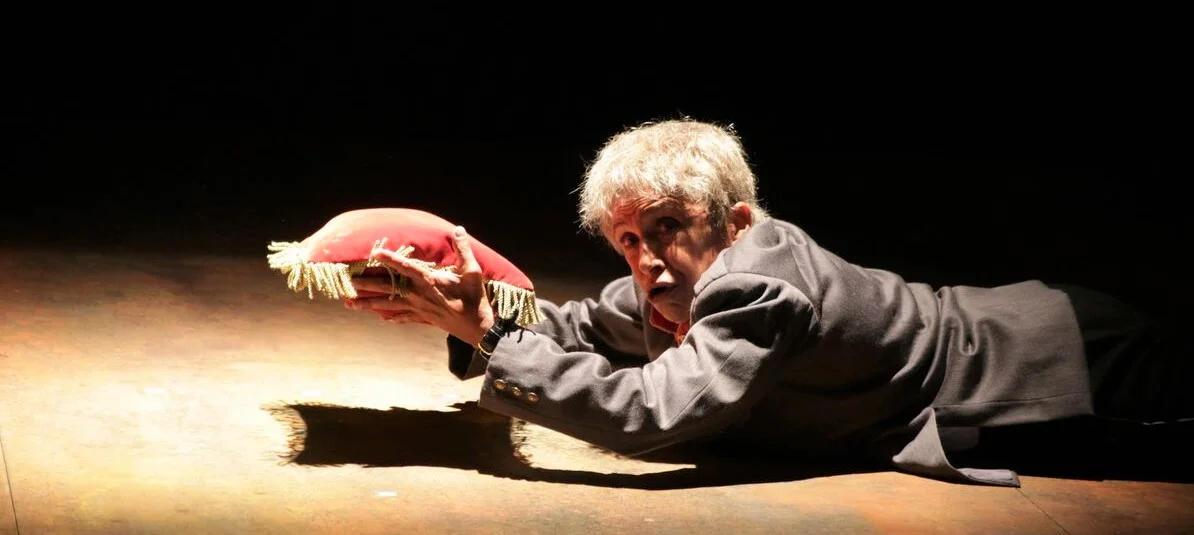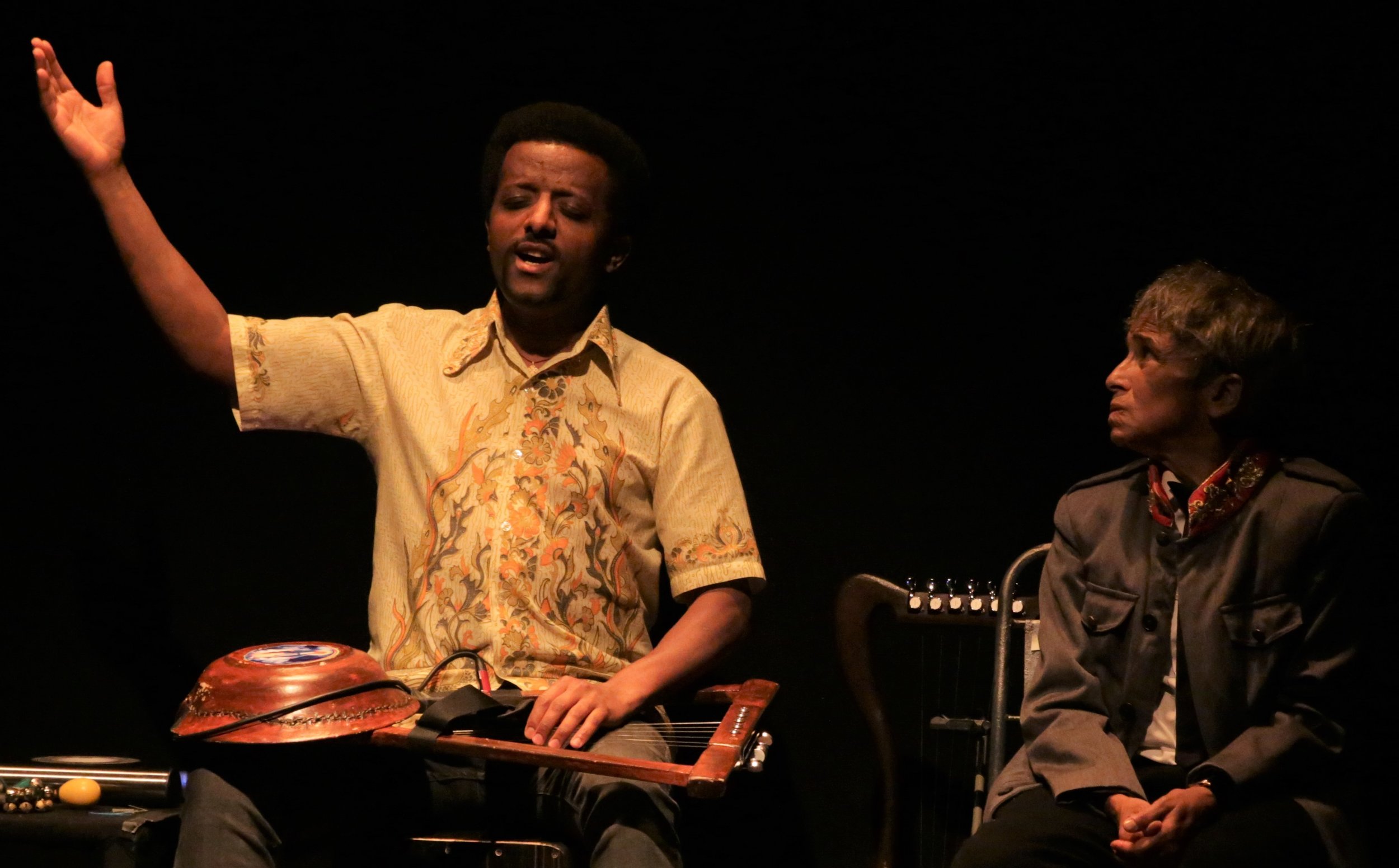The Emperor, based on a book of interviews with elderly government employees in the court of Emperor Haile Selassie of Ethiopia, is every bit as intellectual a docudrama as it sounds, mostly lacking emotional engagement. It’s more like history presented with interspersed activity as window dressing. Those who attend are likely to do so because of actress Kathryn Hunter’s reputation rather than a burning desire to hear about Selassie, who died in 1975.
Kathryn Hunter plays almost a dozen characters in The Emperor, about the reign of Ethiopia’s Haile Selassie. Top: Hunter with musician Temesgen Zeleke and his krar lyre.
Based on a 1978 book by a Polish author Ryszard Kapuściński, the two-person drama has been adapted by Colin Teevan, primarily as a showcase for the marvelous Hunter, who is renowned for her physicality in performance: she recovered from injuries in a car crash when she was a student, despite the expectation of doctors that she would not walk again. She has gone on to immerse herself physically in Women of Troy (as an epileptic Cassandra) and male roles in The Skriker (as a young man) and Richard III (as the deformed title character). She differentiates the speakers not only through alternating accents and postures but with props: a horsehair fly swatter for Z. S. K., the Minister of Information, and dark glasses for E., “purse-bearer to the Emperor’s Treasurer,” and who says (bizarrely, in a jarring cockney accent):
Money in a poor country
And money in a rich country,
Are two quite different things.
In a rich country, money is paper
With which to buy goods from market.
Even the rich man is just another customer.
But in a poor country?
Money is a thing of wonder.
Z. S. K. was perhaps the most loyal attendant: he ultimately sacrificed his own son, an opponent of the Emperor, and even in his old age he cites a litany of the Emperor’s “accomplishments,” without recognizing the irony:
He introduced electricity to the country,
First to his sixteen palaces,
Then to other places.
Hunter with Zeleke in a scene. Photographs by Gerry Goodstein.
Director Walter Meierjohann paces the show well and uses Hunter’s gift of movement to enliven the talky play. She sprawls belly-first across the floor as the Emperor’s pillow-bearer, and later she seems to rumba across the stage. She even pulls out an audience member to dance with her awkwardly and ad-libs about the visitor’s torn jeans. Later, Temesgen Zeleke makes an entrance through the audience, climbing over a balcony railing. More flourishes are provided by sound designer Paul Arditti and lighting designer Mike Gunning, with flashes, gunfire and explosions, as well as scenes from a key film produced about Ethiopia’s famine, but it’s still more appealing to one’s brain cells.
Vocally, Hunter speaks with a rasping voice that occasionally strangulates a syllable or two. At one point, Z. S. K. begins a litany of the Emperor’s accomplishments, and for it, Hunter picks up a mike. Suddenly the unrecognized strain of listening to her until that point eases as the mike projects the words with more clarity.
Gradually one is able to piece together whether Haile Selassie deserved the loyalty of many of his subjects or the scorn of the students who led the uprising against him. One clue comes early, from the purse-bearer: “His Benevolent Majesty was most meticulous about money. Any expenditure, anywhere in the Empire, of more than ten dollars, required his approval.” Put that together with a confrontation with the Emperor after he has been deposed, as new leaders demand the return of money he has stolen.
‘What money?’ the Emperor asked wearily.
‘The money in Swiss and English banks.’
They read a letter from the Swiss Embassy
Saying his Majesty [had] on account in their banks
A hundred million dollars…
The cast of characters by the end have different views of the story. T. L. says, “Now that it’s all gone, it fascinates me, how we once believed.” A. M. M. says, “We knew our place. That is a good thing to know.” Ultimately, The Emperor is a persuasive portrait of the various ways human beings may succumb to tyranny.
Co-produced by the Young Vic, HOME, and Les Théâtres de la Ville de Luxembourg, The Emperor plays through Sept. 30 at Theatre for a New Audience (262 Ashland Place, Brooklyn). Evening performances are at 7:30 p.m. Tuesday through Friday; matinees are at 2 p.m. on Saturday and Sunday. For tickets and more information, visit tfana.org.





